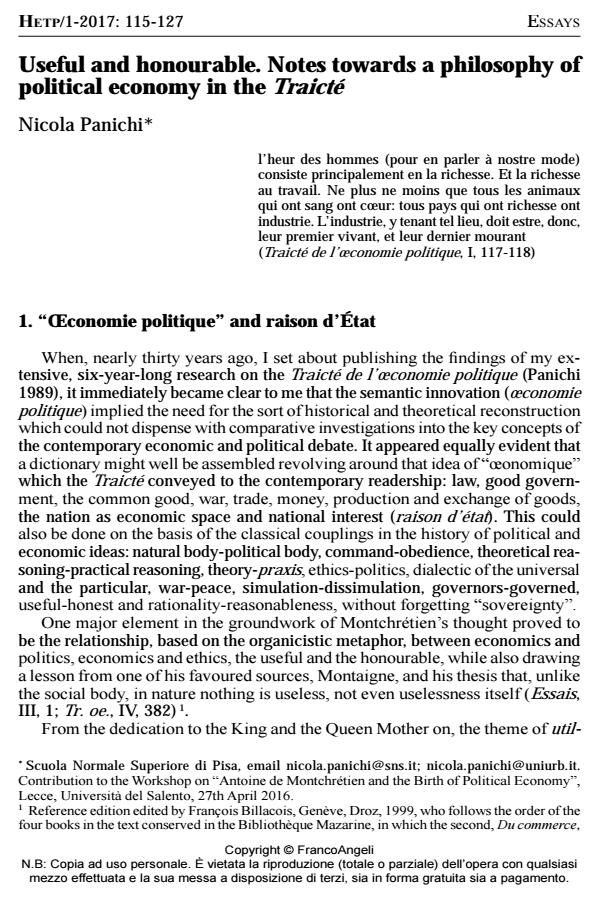Useful and honourable. Notes towards a philosophy of political economy in the Traicté
Titolo Rivista HISTORY OF ECONOMIC THOUGHT AND POLICY
Autori/Curatori Nicola Panichi
Anno di pubblicazione 2017 Fascicolo 2017/1
Lingua Inglese Numero pagine 13 P. 115-127 Dimensione file 213 KB
DOI 10.3280/SPE2017-001006
Il DOI è il codice a barre della proprietà intellettuale: per saperne di più
clicca qui
Qui sotto puoi vedere in anteprima la prima pagina di questo articolo.
Se questo articolo ti interessa, lo puoi acquistare (e scaricare in formato pdf) seguendo le facili indicazioni per acquistare il download credit. Acquista Download Credits per scaricare questo Articolo in formato PDF

FrancoAngeli è membro della Publishers International Linking Association, Inc (PILA)associazione indipendente e non profit per facilitare (attraverso i servizi tecnologici implementati da CrossRef.org) l’accesso degli studiosi ai contenuti digitali nelle pubblicazioni professionali e scientifiche
Montchrétien set off in pursuit of a solution to the complex problem of the relationship between economics and politics, inherent to the sovereign’s task of modifying the laws according to the needs, and working on the aspects regarding the health and conservation of the State. If what is "useful" for the city is the true end of reasonable policy (of raison d’état), then is it to be a matter of reaffirming the Ciceronian viewpoint, the "useful" and the "honourable" being inseparable, as Aristotle taught in the seventh book of Politics? Montchrétien seems to follow the reflections of Bonaventura, according to whom the useful which does not abandon the honourable, pursued and conserved from raison d’état, is that which seeks to preserve the city in well-being not only from the inevitable decay of time (the body politic ages, just like the natural and animal body) but to conserve it with a view to the health of the social body, to which all the efforts of the nation should be directed, becoming the sort of collective subject, much like seamen aboard a ship with different tasks serving one common purpose.
Parole chiave:Antoine de Montchrétien; "theory of perfectibility", political economy and political theory; philosophy of political economy.
Jel codes:B11; B19; B31
Nicola Panichi, Useful and honourable. Notes towards a philosophy of political economy in the Traicté in "HISTORY OF ECONOMIC THOUGHT AND POLICY" 1/2017, pp 115-127, DOI: 10.3280/SPE2017-001006